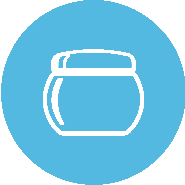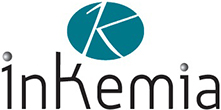|
Today we are introducing our newsletter with one goal: building a communication channel with you. A communication line that goes in both directions, approaching you to our knowledge and activity, and bringing us closer to your interests. We hope that you will find them interesting and invite you to send us suggestions about future contents to This email address is being protected from spambots. You need JavaScript enabled to view it..
Our first publication deals with the import of pharmaceuticals and cosmetics. Future editions will focus on other subjects such as NMR and its applications, ENAC certification, biocatalysis and other issues related to the life science industry.
IMPORTING INTO THE EU PHARMACEUTICALS AND COSMETICS MANUFACTURED IN THIRD COUNTRIES
According to current EU regulations, pharmaceuticals and cosmetics, manufactured in third countries and imported into the EU, have to be certified for its quality and compliance with Good Manufacturing Practices by an authorized importer with a qualified team. You will find a review of the current regulations in the following sections.
If you have interest in importing such products Inkemia may help you in all or part of the process.
EUROPEAN PROVISIONS FOR IMPORTING PHARMACEUTICALS FROM THIRD COUNTRIES
 |
European requirements, described in annex 16 to the European Union (EU) guide to Good Manufacturing Practices of medicinal products (GMP), indicate that in order to introduce a pharmaceutical product in the EU a pharmaceutical laboratory physically located therein has to perform the quality control of each batch of product (unless there is an agreement of mutual recognition), its QP (qualified person) has to certify the batch and finally issue the certificate of release. The laboratory responsible for carrying out these activities is called "importer” and has to be specifically authorized as such.
|
Obligations related to batch certification are listed in Annex 16 and include:
-
Compliance of the batch with the specifications defined in the marketing authorization.
-
The manufacturing conditions are in accordance with the provisions of the marketing authorization.
-
The storage and distribution conditions are appropriate.
-
Assurance as to knowledge and control of the supply chain of the starting materials.
-
Ensure that the manufacture has been performed according to European GMP or equivalent practices.
-
Validation of the manufacturing processes and the analytical methods.
-
Ensure that the established and scheduled audits are carried out.
-
Review of the deviations and changes in the manufacturing process and quality control.
-
Review of the batch documentation in terms of content and integrity.
However, the publication of a new annex to the rules of GMP dedicated to import of drugs (Annex 21) is expected this year. In this text the most relevant requirements, from the point of view of GMP, for importers and the different entities involved in import activities will be highlighted.
INKEMIA AT YOUR SERVICE IMPORTING PHARMACEUTICAL PRODUCTS TO THE EUROPEAN UNION
IUCT, a company belonging to Inkemia IUCT group, has extended its manufacturer’s authorization nº 4155E (MIA 1106) and has been accredited by the Spanish Agency of Medicines and Medical Devices (AEMPS) as importer in April, 2016.
As a consequence, IUCT widens its range of services by adding quality control, batch certification and release in Europe of pharmaceutical products manufactured in third countries.
Additionally, in an effort to provide a global service, IUCT also offers support in other activities related to the import and marketing of pharmaceutical products in the European Union. Within the range of services IUCT offers you can find: preparation and submission of dossiers in the European countries of your interest, support in getting GMP certification of the manufacturer's facilities, transport & customs and pharmacovigilance services, audit services, among others.
IMPORTING COSMETICS FROM COUNTRIES OUTSIDE OF THE EU
Cosmetics within European countries are regulated by Regulation (EC) No 1223/2009 since 11th July 2013, meaning that its provisions will be of application in all Member States, without being subject to potential alterations when translated into national legislations. Summarizing, the main requirements that a cosmetic product has to comply with are:
-
Products have to fit into the cosmetic product definition (art. 2).

-
A responsible Person (RP) in the EU has to be designated (art. 4).
-
Manufacturing activities have to be done in compliance with good manufacturing practice (art. 8).
-
Obligation for a manufacturer to prepare product information file with a safety assessment (art. 11).
-
All products to be marketed in the EU must be notified to the Cosmetic Products Notification Portal (CPNP) before being placed on the market (art. 13).
-
Its composition must take into account the established restrictions for certain substances (Chapter IV).
-
Labeling must comply with the provisions of Article 19. Furthermore, in accordance with the provisions of the Spanish legislation, the following information must be included in Spanish: the nominal content at packaging date, date of minimum durability, any special precautions to be observed in use and the function of the product (unless it is clear from the presentation).
-
Registration of the importing company. The registration process is regulated by each EU country and may differ among them.
In Spain, the cosmetics import activities are subject to a notification procedure based on a responsible declaration, governed by Article 71a of Law 30/1992 of 26 November. This responsible statement must be submitted to the Spanish Agency for Medicines and Health Products (AEMPS). That submission will allow the start of activities, without prejudice to subsequent verification by the AEMPS, through documentary verification and, where appropriate, inspection of the elements and circumstances revealed in the declaration of responsibility.
In short, the obligations for a importer of cosmetics products detailed in the responsible statement are:
-
Assign to an appropriately qualified technician the responsibility for supervising import activities and compliance with the European requirements of imported products.
-
Have an updated quality system designed to ensure that imported products have been manufactured in accordance with Good Manufacturing Practice (GMP) and the applicable principles of GMP are observed in imported products.
-
Have an organizational structure capable of ensuring the implementation of suitable procedures and controls to document all aspects required in the product information file.
-
Have suitable facilities, equipment and qualified personnel to perform import activities, labeling (if any), storage and control.
-
Maintain written Standard Operation Procedures (SOPs) for labeling, where appropriate, storage and control activities, for keeping traceability, for archiving documents, specifications, transcripts and records required by regulation and for monitoring products on the market.
-
In case of outsourced activities, the parties have to sign technical agreements in which the activities and responsibilities are described and assigned. In addition the importer has to verify through regular audits the capacity and compliance of the outsourcer.
INKEMIA AT YOUR SERVICE TO HELP YOU IMPORTING COSMETICS TO THE EUROPEAN UNION
Inkemia can help you when importing cosmetics manufactured in third countries into the EU in different ways, such as:
-
Prepare the Product Information File and the safety assessment.
-
Notify to the Cosmetic Products Notification Portal (CPNP).
-
Review labeling.
-
Inkemia can act as an importer and submit the responsible statement to the AGEMED.
-
Members of our qualified team can act as responsible person.
-
Inkemia can be your quality control laboratory for cosmetics. Our facilities were audited and are approved for that activity by the AGEMED.

|
 English
English  Portuguese
Portuguese  Català
Català  Español
Español 


